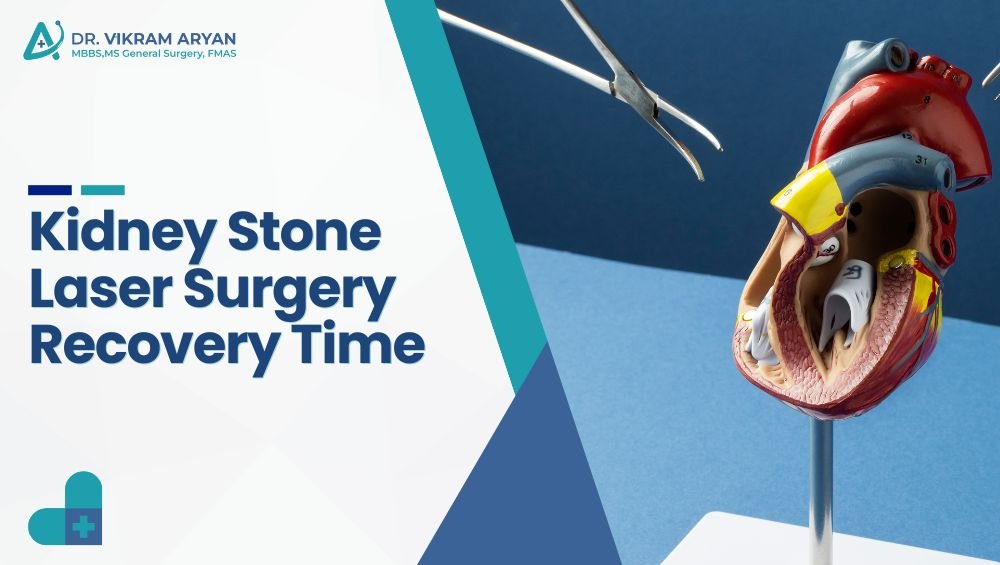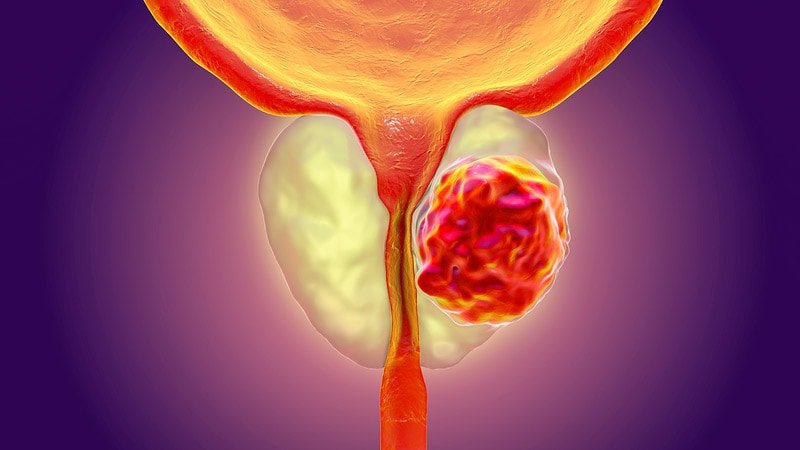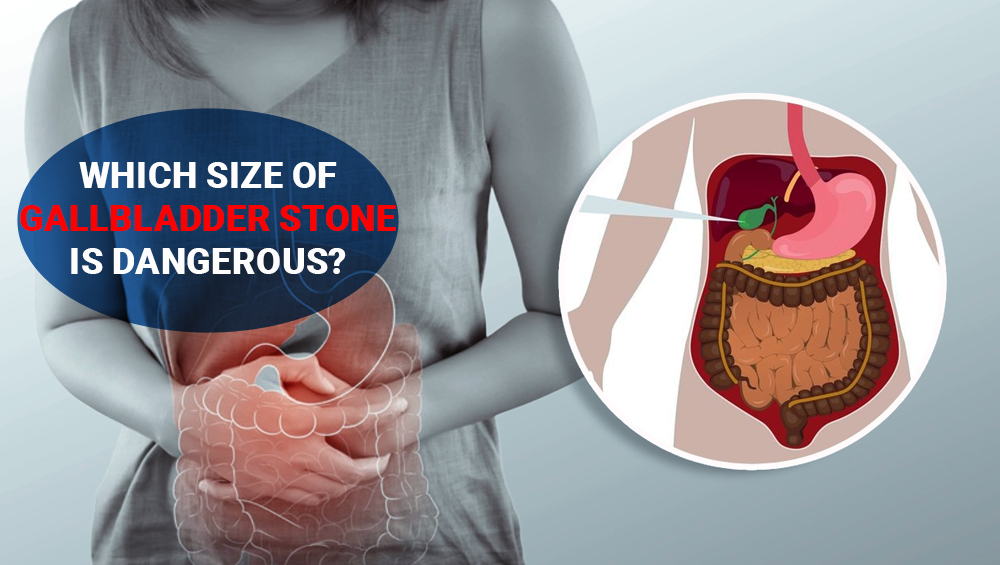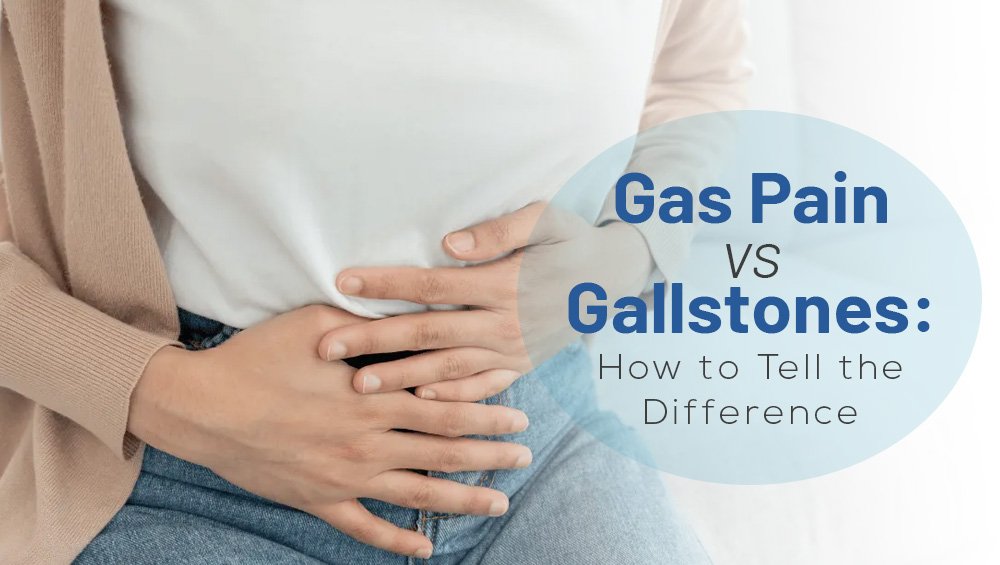In our country, kidney stones affect people of all ages and are most common in the elderly. Kidney stones are responsible for 50% of all stone-related illnesses. They can recur and cause complications. The most dangerous is kidney failure.
If you have a kidney stone 6-7mm in size, Medications are often used first to try and help the stones pass. However, surgery is sometimes required because these stones can be too large to pass on their own.
This guide explains what you should choose, whether medication or surgery, as well as how to select the best laparoscopic surgeons in Gurgaon.
Understanding 6–7mm Kidney Stones
The kidney stone can be as large as 6-7mm. A relatively large mass of salts and minerals that is formed in the kidneys and is less likely to be excreted by the body.
Are 6-7mm kidney stones dangerous?
The formation of kidney stones occurs when urine contains excess minerals and salts which crystallize and further develop into solid deposits. At first, these stones may be small and cause little or no symptoms. However, as they grow larger, they may cause complications as they obstruct the urinary tract.
Stones that are less than 5mm in size have a reasonable chance of passing in urine. However, at 6-7mm, the stone’s ability to pass is less significant. In addition, when they reach this size, the stones can cause blockage in the ureter. This can trigger extreme pain in the side and a burning sensation during urination, nausea, vomiting and in some instances, the presence of blood in the urine.
Kidney stones that measure 6-7mm could cause more serious issues like kidney swelling or impairment to the kidney's function. It is crucial to see an experienced physician as soon as you notice any signs. Based on the circumstances, the treatment must consist of medication to clear the stone, as well as minimally invasive procedures or surgical procedures.
Taking Medication or Having Surgery for 6–7mm Kidney Stones?
The treatment for kidney stones mainly depends on two factors:
- The size of the stone
- How much it is affecting the kidney or urinary tract
Medication / Conservative Management
Medical management may be considered if:
- The stone is not causing a significant obstruction
- Pain is manageable
- Kidney function is normal
- Patient is willing to follow up regularly
Conservative measures include:
- Drinking water - drink 2.5 to 3 liters a day to help the stones move.
- Medical expulsion therapy (MET): Alpha-blockers such as tamsulosin relax the ureter.
- and Pain management – NSAIDs, other prescribed medications.
- Changes in diet - reduce salt, animal protein,s and foods that are high in oxalates.
Pros: Non-invasive, avoids surgery, and is cost-effective.
Cons: It can fail, take longer, and there is a risk of kidney injury if an obstruction occurs.
Surgical Options for 6-7 mm Kidney Stone
Procedure | How it Works | Pros | Cons |
| ESWL | Shockwaves fragment the stone | Non-invasive, outpatient | Less effective for hard stones, may need multiple sessions |
| URS / URSL | Scope passed via the urinary tract; the stone was broken or removed | High success, minimally invasive | May require a stent, slight ureter injury risk |
| RIRS | Flexible scope enters the kidney; laser breaks the stone | Effective for kidney stones, minimal incision | Requires a skilled surgeon and specialized equipment |
| PCNL | A small incision in the back to remove the stone | Very effective for large/complex stones | More invasive, hospital stay, usually for stones like 20mm |
For 6–7mm stones, URS or RIRS are usually preferred.
When Do You Need Surgery?
If your stone is quite big, like a 7mm kidney stone, there is a very low chance of it passing by itself. In this situation, surgeons would normally suggest surgery. You might also require surgical intervention if:
- Your pain is too intense and doesn't fade away with medications
- You are experiencing frequent urinary infections
- The stone is obstructing the flow of urine and compressing the kidney
In such cases, surgery is the better and more dependable alternative to avoid further injury and to provide relief from incessant pain.
Conclusion
If the kidney stone is less than 6mm in size, it can be treated by medication and observation. A kidney stone that is 7mm or larger will require surgery as it has little chance of passing on its own and comes with increased risks of pain, infection, and obstruction.
It is important to choose the best laparoscopic surgeon in Gurgaon for surgical intervention. Dr. Vikram Aryan has over 18 years of experience in laparoscopic and Endourological procedures. He has treated many patients successfully, providing effective and minimally invasive treatments and faster recovery. Consulting him will ensure a customized plan and that you are stone-free in the shortest time possible.
FAQs for 6-7mm Kidney Stone
Q: How big is a 6-7 mm kidney stone?
Larger than a pencil eraser but smaller than a green pea.
Q: Is 7mm a large stone?
While a stone of 7mm isn't a huge amount however, it is not a lot of stones that pass on its own, and it can cause significant pain or even complications.
Q: Can you live with a 7mm kidney stone?
Yes, you can but it is risky. A 7mm stone rarely passes on its own and can cause pain, infection, or kidney damage. See a doctor for treatment.
Q: How to remove a 7mm kidney stone without surgery?
It is not likely that a stone with a size of 7mm will be cleared by itself, however, doctors may prescribe medication to improve the flow of urine and ease the urinary tract. Certain stones, like the stones containing uric acid, can be treated by taking medications. Drinking plenty of fluids can aid. Some 7mm stones need surgery if they don't go away.








